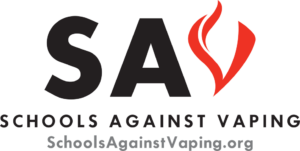Hattiesburg School District Partners with Schools Against Vaping
The Hattiesburg Public School District has become the second school district in the country to partner with Schools Against Vaping and will opt into a national legal challenge to e-cigarette manufacturer JUUL.
Representatives from Schools Against Vaping – which is a national education advocacy program designed to help combat the vaping epidemic on school campuses – were joined by school district officials during an Oct. 5 news conference at the HPSD board room to give more information about the initiative.
“Recently, our board of trustees opted into this partnership, and we are very excited about it,” school district superintendent Robert Williams said. “In addition to this campaign, we’ll not only educate the youth, but discuss the challenges that schools and school districts face as related to e-cigarettes.
“We believe that by joining this partnership, it will provide an opportunity for us – along with other school districts – to move forward towards better health and wellness. Personally, I have two children in this district, and my top concern is their health, well-being and safety. Not only am I charged with the safety of my two children, but also the over 3,800 other students in our school district, as well as its over 600 employees.”
According to numbers from the U.S. Centers for Disease Control and Prevention, more than 5 million middle and high school students are currently using some form of e-cigarettes or other vaping devices, increasingly bringing those devices to secretly use on school campuses. In addition, CDC officials have stated that young people who use e-cigarettes run the risk of future addiction to other drugs.
“Currently, the world is living under the threat of a virus that attacks the respiratory system,” Williams said. “We believe that it’s in the best interest of our students, and our community, to prevent teens from vaping.”
As part of Schools Against Vaping’s three-tiered approach, officials focus on classrooms and provide items such as curriculum guides to help teachers in the fight against vaping. Schools Against Vaping will also turn their attention toward boardrooms and courtrooms.
“We’ll be partnering with organizations that are friendly to kids and to education,” said Michael Marks, national executive director of Schools Against Vaping. “Then we’ll work with local legislators to enact legislation at the state level, and also to apprise school districts of the class action lawsuit, to provide monetary support for cessation and education programs on their campuses.”
Dr. Melissa Stevens, who serves as a member of the advisory council for Schools Against Vaping, said as an educator, she feels that it’s very important to teach prevention. One of the best ways to do that, she said, is to reach young people and children.
“We have been working for several years in the community to educate children specifically about the dangers of tobacco, and more recently, with the vaping epidemic that we have seen through the Tar Wars program,” Stevens said. “The Tar Wars program is a curriculum that is operated through the American Academy of Family Physicians, and we partner specifically with the Mississippi Academy of Family Physicians to bring this curriculum out to schools.
“We’re very excited to be able to continue our journey for educating children regarding these dangers and risks by this partnership. It’s an honor and a privilege to do that, and we look forward to growing our program through the support that we receive from (Schools Against Vaping).”
In early August, the Lamar County School District joined the lawsuit against JUUL, which alleges the company has targeted school-age children with its products, leading to underage vaping at schools across the country.
The suit, which is being handled by Frantz Law Group out of Los Angeles, accuses JUUL of design defect, failure to warn, negligence and being a public nuisance. The suit states that the cigarette industry has a long history of marketing to young people under the age of 21, but while “Big Tobacco” is prohibited from many marketing tactics promoting cigarette use among young people, JUUL has been allowed to implement those strategies in order to build their customer base.
It goes on to say vaping hurts individual student learning and has led to a rise in student absences because of sickness.
“As we know, we’ve now got medical marijuana that’s front and center, and to add to it the vaping – now, if you put THC in it, that’s not going to do very well for our children,” said Ed Langton, who also serves on the advisory council for Schools Against Vaping. “Cognitive reason and development starts at youth and goes through age 25, so vaping was bad enough in itself, with so many different detrimental substances that could be in the vaping.
“So the lung situation, as well as addiction, are two of the primary concerns, and the health department is doing more and more research on those things with the lungs. So this is a wonderful effort.”
